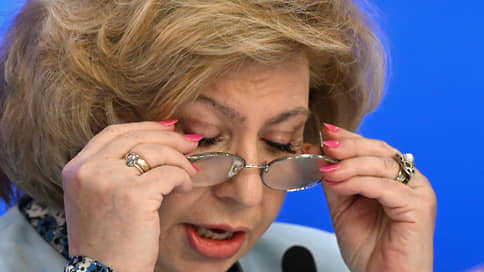On the “Territory of Meanings” there is a shift for politicians and statesmen
[ad_1]

On Wednesday, at the youth forum “Territory of Meanings” taking place in the Moscow region (supervised by Rosmolodezh and the presidential administration), the “Serve” shift was opened, the participants of which were “politicians, managers, representatives of authorities and law enforcement agencies.” Ombudsman Tatyana Moskalkova told them about Russophobia, an employee of the presidential administration Yevgeny Grachev about the problems of municipal service, and Moscow Mayor Sergei Sobyanin about why there is nothing wrong with the fact that even in difficult times the capital continues to have fun. Young “servants” were also taught to make projects that will help people and benefit the state in accordance with the values of pentabasis.
The first speaker of the “Territory of Meanings” on August 16 was Tatyana Moskalkova, Commissioner for Human Rights in the Russian Federation. She began with a story that without human rights there is no progress, and the realization of this fact came back in the days of the USSR, in the 80s. “But today life has dictated new challenges and threats. And of course, our institution as a state body, a legal human rights institution, turned out to be in great demand,” continued Ms. Moskalkova. The main of these challenges were “Russophobia and sanctions,” she said: “Our students are expelled from universities only on one basis – Russian! Passport of a citizen of Russia. And we stand together with the Ministry of Foreign Affairs, with the Prosecutor General’s Office, with the Ministry of Education to protect these guys.” The Ombudsman also admitted that she has always been for the right of Russians to seek justice in the ECHR, but Russia was “forced” to withdraw from the jurisdiction of the Strasbourg Court.
In the middle of the day, the members of the forum scattered around the tents, where the moderators gave them special tasks. In one of them, the shift participants were given three cards – “a group of citizens”, “benefit for citizens”, “benefit for the state” – and explained that all proposed projects must simultaneously meet all three criteria. “And those who left? Does it make sense to improve their lives?” the moderator asked the participants. “We have projects related to human capital. But it is very important that they benefit the state and be associated with the values of pentabasis,” she later explained to Kommersant.
After that, the forum participants had a panel discussion with the participation of Evgeny Grachev, deputy head of the presidential department for domestic policy. He said that 63% of local government employees talk about the need to popularize the municipal service, and for this purpose, the Service award will be established for them in 2024. “Responsiveness, attentiveness, understanding of the problems of citizens, sociability, friendliness, smile, positive attitude, tolerance, care for people,” the official listed what ordinary citizens want from municipal employees. At the same time, people go to such work not for money, but just from the idea of “service,” he emphasized. And for young people who come to the municipal service for a couple of years, and then go to commercial companies, “it is important to instill service not for the first two or three years, but for a long time,” summed up Mr. Grachev.
Finally, in the evening, the main newsmaker of the day, Moscow Mayor Sergei Sobyanin, appeared before the members of the forum. “Why are you so joyful? Is your weather good? Moscow is good too. What to talk about with you? About meanings? About what meanings? the mayor joked, dressed in a polo without a jacket and radiating positivity. He advised one of the participants, who, after living in Moscow, returned to the Stavropol Territory, to return to the capital, since there are “many suitors” here. Then Mr. Sobyanin divided the audience into several groups: those who live in Moscow, those who want to move to Moscow, and those who want to relax here. He determined the number of representatives of each group by the volume of applause. “Probably, there are fourth ones – those who will not go to Moscow under any circumstances,” the mayor suggested, and the hall approved this thesis with applause.
It was on opposition to those who do not like the capital that Sergei Sobyanin built his speech. He recalled that Moscow, where a fifth of the country’s economy is concentrated, contributes 2.2 trillion rubles to the Russian budget. And if you remove Moscow, then Russia will slide from fifth place among world economies to fifteenth, the mayor emphasized: “She (Russia.— “b”), of course, would be a great country, but not so great anymore. He also debunked accusations that the capital leads an idle lifestyle: “They say that we have fun and sing here, but our country is at war … I must say that Moscow, in its contribution to the defensive structures of the special military operation, has done as much as other regions combined. And according to the mayor’s estimates, the capital sent 45,000 direct participants in the NWO. Well, his last argument was again purely peaceful: “We should not live in mourning. The guys at the front do not live in mourning.” And as an example of such a “non-mourning” life, Sergei Sobyanin cited the plans of the city authorities, who in the near future are going to equip 15 pools with artificial heating in Moscow and “surpass Sochi”.
[ad_2]
Source link








